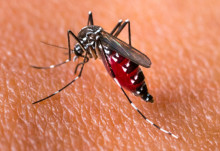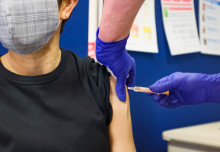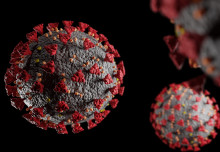

AMS Fellows 2023
Three Imperial researchers awarded AMS Fellowships
Three leading Imperial researchers have been elected to the Fellowship of the Academy of Medical Sciences for their outstanding work in their fields.



Three Imperial researchers awarded AMS Fellowships
Three leading Imperial researchers have been elected to the Fellowship of the Academy of Medical Sciences for their outstanding work in their fields.


Gut bacteria use super-polymers to dodge antibiotics
Gut bacteria exchange drug-resistant DNA and form infectious biofilms more easily than expected.
 1
1


Q&A: New insights into chikungunya virus outbreaks in Brazil
Since its introduction in 2014, chikungunya has caused more than one million infections in Brazil through multiple epidemic waves.


COVID-19 spread in households linked to virus on hands and surfaces
A new study provides the first empirical evidence for transmission of SARS-CoV-2 via people’s hands and frequently touched household surfaces.


Infectious disease modeller wins prestigious mathematics prize
An Imperial epidemiologist has been awarded a share of a prestigious maths prize for her outstanding work in modelling infectious disease outbreaks.


Feature
Research to improve the understanding of the causes of encephalitis is essential
On World Encephalitis Day, 22nd February, scientists raise awareness on the importance of studying this uncommon disease.
 2
2


Research shows how human cells are protected when the immune system switches on
Researchers show how a mechanism that human cells use to protect themselves against overzealous immune responses can be hijacked by invading bacteria.


Delaying second doses of vaccine reduced COVID-19 hospitalisations and deaths
Delaying people’s second COVID-19 vaccine dose likely prevented tens of thousands of hospitalisations and thousands of deaths in England.


COVID-19 a leading cause of death in children and young people in the US
Analysis of US health data highlights COVID-19 was a leading cause of death in children and young people, ranking 8th overall.


Imperial startup Biocentis to develop genetic tech to control harmful insects
Biocentis has received investment to use CRISPR-based gene-editing to control insect populations that harm health, food security and biodiversity.
 2
2